Open Education Russia 2
In the second of our Open Education Russia blog posts and the third of our #openeducationwk posts Anna Sakoyan and Irina Radchenko look at how they have been experimenting with data expeditions. The first post gave an overview of Open Education projects in Russia.
The authors of this post are Anna Sakoyan and Irina Radchenko, who together founded DataDrivenJournalism.RU. Anna is currently working as a journalist and translator for a Russian analytical resource Polit.ru and is also involved in the activities of NGO InfoCulture. You can reach Anna on Twitter on @ansakoy, on Facebook and on LinkedIn. She blogs in English at http://ourchiefweapons.wordpress.com/.Irina Radchenko is a Associate Professor at ITMO University and Chief Coordinator of Open Knowledge Russia. You can reach Irina on Twitter on @iradche, on Facebook and on LinkedIn. She blogs in Russian at http://iradche.ru//.
***
Experimenting with Data Expeditions
1. DataDrivenJournalism.RU project and Russian Data Expeditions
The open educational project DataDrivenJournalism.RU was launched in April 2013 by a group of enthusiasts. Initially it was predominantly a blog, which accumulated translated and originally written manuals on working with data, as well as more general articles about data driven journalism. Its mission was formulated as promoting the use of data (Open Data first of all) in the Russian-language environment and its main objective was to create an online platform to consolidate the Russian-speaking people who were interested in working with data, so that they can exchange their experiences and learn from each other. As the number of the published materials grew, they had to be structured in a searchable way, which resulted in making it look more like a website with special sections for learning materials, interactive educational projects (data expeditions), helpful links, etc.
On one hand, it operates as an educational resource with a growing collection of tutorials, a glossary and lists of helpful external links, as well as the central platform of its data expeditions; on the other hand, as a blog, it provides a broader context of open data application to various areas of activity, including data driven journalism itself.
After almost two years of its existence, DataDrivenJournalism.RU has a team of 10 regular authors (comprised of enthusiasts from Germany, Kazakhstan, Russia, Sweden and UK). More than a hundred posts have been published, including 15 tutorials. It has also launched 4 data expeditions, the most recent in December 2014.
The term data expedition was first coined by Open Knowledge’s School of Data, which launched such peer-learning projects both in online and offline formats. We took this model as the basic principle and tried to apply it to the Russian environment. It turned out to be rather perspective, so we began experimenting with it, in order to make this format a more efficient education tool. In particular, we have tried a very loose organisational approach where the participants only had a general subject in common, but were free to choose their own strategy in working with it; a rather rigid approach with a scenario and tasks; and a model, which included experts who could navigate the participants in the area that they had to explore. These have been discussed in our guest post on Brian Kelly’s blog ‘UK Web Focus’.
Our fourth data expedition was part of a hybrid learning model. Namely, it was the practical part of a two-week’s offline course taught by Irina Radchenko in Kazakhstan. This experience appears to be rather inspiring and instructive.
2. International Data Expedition in Kazakhstan
The fourth Russian-language data expedition (DE4) was a part of a two-week’s course under the auspices of Karaganda State Technological University taught by Irina Radchenko. After the course was over the university participants who sucessfully completed all the tasks within DE4 received a certificate. Most interesting projects were later published at DataDrivenJournalism.RU. One of them is about industry in Kazakhstan by Asylbek Mubarak who also tells (in Russian) about his experience of participating in DE4 and also about the key stages of his work with data. The other, by Roman Ni is about some aspects of Kazakhstan budget.
First off, it was a unique experience of launching a data expedition outside Russia. It was also interesting that DE4 was a part of a hybrid learning format, which combined traditional offline lectures and seminars with a peer-learning approach. The specific of the peer-learning part was that it was open, so that any online user could participate. The problem was that the decision to make it open occurred rather late, so there was not much time to properly promote its announcement. However, there were several people from Russia and Ukraine who registered for participation. Unfortunately none of them participated actively, but hopefully, they managed to make some use of course materials and tasks published in the DE4 Google group.
This mixed format was rather time-taking, because it required not only preparation for regular lectures, but also a lot of online activity, including interaction with the participants, answering their questions in Google group and checking their online projects. The participants of the offline course seemed enthusiastic about the online part, many found it interesting and intriguing. In the final survey following DE4, most of the respondents emphasised that they liked the online part.
The initial level of the participants was very uneven. Some of them knew how to program and work with data bases, others had hardly ever been exposed to working with data. DE4 main tasks were build in a way that they could be done from scratch based only on the knowledge provided within the course. Meanwhile, there were also more advanced tasks and techniques for those who might find them interesting. Unfortunately, many participants could not complete all the tasks, because they were students and were right in the middle of taking their midterm exams at university.
Compared to our previous DEs, the percentage of completed tasks was much higher. The DE4 participants were clearly better motivated in terms of demonstrating their performance. Most importantly, some of them were interested in receiving a certificate. Another considerable motivation was participation in offline activities, including face-to-face discussions, as well as interaction during Irina’s lectures and seminars.
Technically, like all the previous expeditions, DE4 was centered around a closed Google group, which was used by the organisers to publish materials and tasks and by participants to discuss tasks, ask questions, exchange helpful links and coordinate their working process (as most of them worked in small teams). The chief tools within DE4 were Google Docs, Google Spreadsheets, Google Refine and Infogr.am. Participants were also encouraged to suggest or use other tools if they find it appropriate.
42 people registered for participation. 36 of them were those who took the offline course at Karaganda State Technical University. Those were most active, so most of our observations are based on their results and feedback. Also, due to the university base of the course, 50% of the participants were undergraduate students, while the other half included postgraduate students, people with a higher education and PhD. Two thirds of the participants were women. As to age groups, almost a half of the participants were between 16 and 21 years old, but there was also a considerable number of those between 22 and 30 years old and two above 50.
13 per cent of the participants completed all the tasks, including the final report. According to their responses to the final survey, most of them did their practical tasks by small pieces, but regularly. As to online interaction, the majority of respondens said they were quite satisfied with their communication experience. About a half of them though admitted that they did not contribute to online discussions, although found others’ contributions helpful. General feedback was very positive. Many pointed out that they were inspired by the friendly atmosphere and mutual helpfulness. Most said they were going to keep learning how to work with open data on their own. Almost all claimed they would like to participate in other data expeditions.
3. Conclusions
DE4 was an interesting step in the development of the format. In particular, it showed that an open peer-learning format can be an important integral part of a traditional course. It had a ready-made scenario and an instructor, but at the same time it heavily relied on the participants’ mutual help and experience exchange, and also provided a great degree of freedom and flexibility regarding the choice of subjects and tools.
It is also yet another contribution to the collection of materials, which might be helpful in future expeditions alongside with the materials from all the previous DEs. It is part of a process of gradual formation of an educational resources base, as well as a supportive social base. As new methods are applied and tested in DEs, the practices that proved best are stored and used, which helps to make this format more flexible and helpful. What is most important is that this model can be applied to almost any educational initiative, because it is easily replicated and based on using free online services.
 Open Education Working Group
Open Education Working Group 

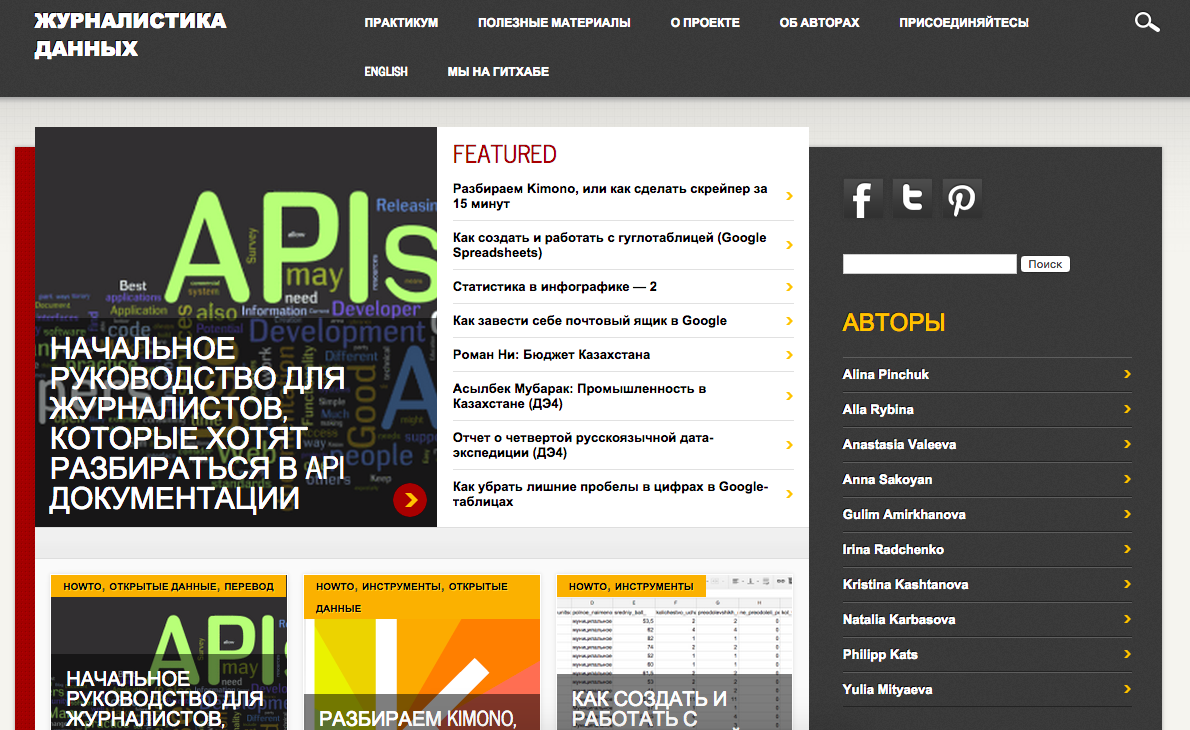
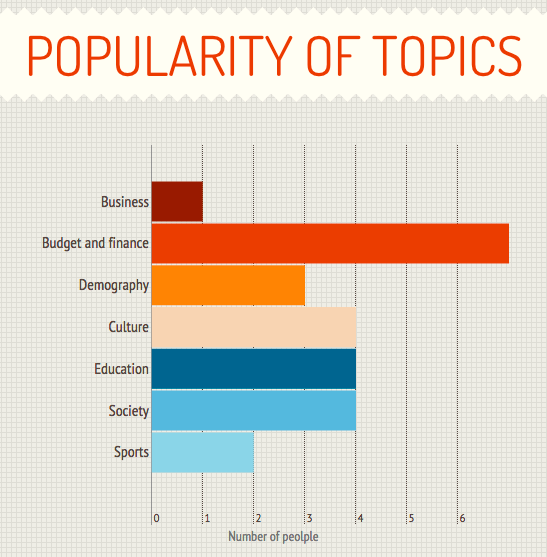
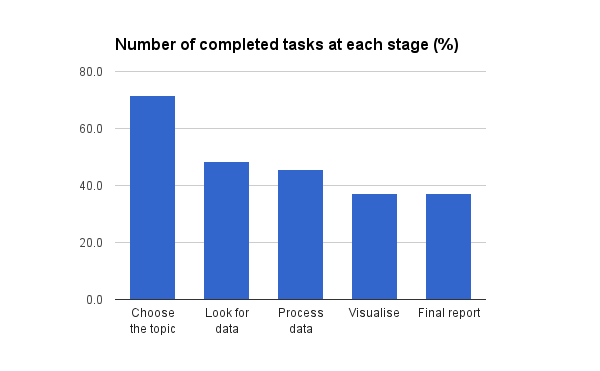
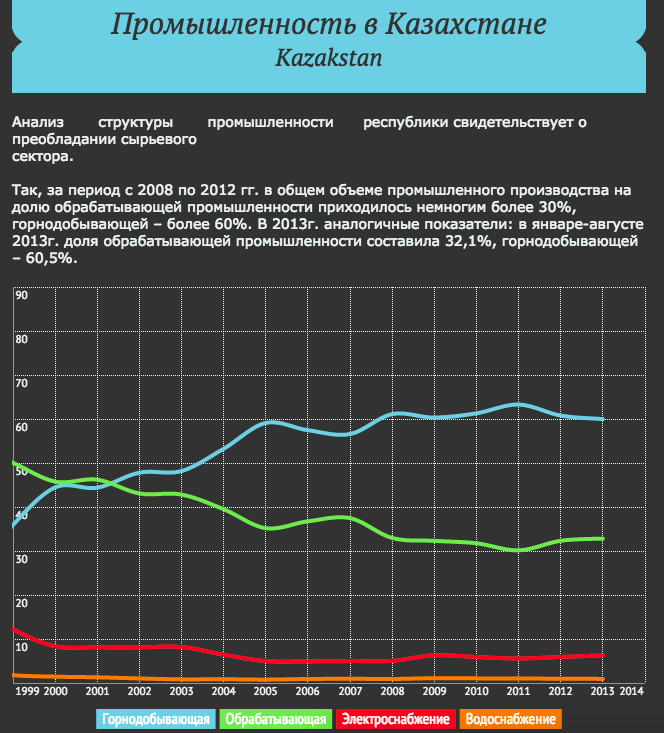
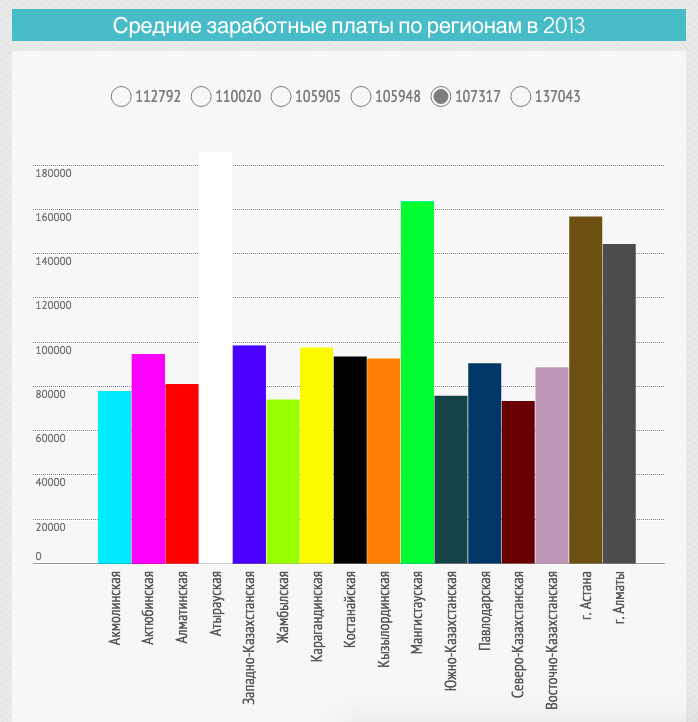




[…] С 9 по 16 марта весь научно-образовательный мир отмечает неделю Открытого образования (Open Education Week — 2015). К этому событию приурочены различные мероприятия, как образовательного, так и просветительного характера (http://www.openeducationweek.org/). Наше российское отделение Open Knowledge тоже не осталось в стороне. Как и в прошлом году, когда мы с Анной Сакоян написали пост в блог UK Web Focus (https://ukwebfocus.wordpress.com/2014/03/15/data-expeditions-and-data-journalism-project-as-oer-in-russian/), мы решили продолжить начинание и опубликовали два поста в блоге Open Knowledge. Первый пост был посвящен обзору российских открытых образовательных ресурсов (http://education.okfn.org/open-education-russia/), второй пост освещает наши дата-экспедиции (http://education.okfn.org/open-education-russia-2/). […]
[…] Как и в прошлом году, когда мы написали пост в блог UK Web Focus (https://ukwebfocus.wordpress.com/2014/03/15/data-expeditions-and-data-journalism-project-as-oer-in-russian/), мы решили продолжить начинание и опубликовали два поста в блоге Open Knowledge. Первый пост был посвящен обзору российских открытых образовательных ресурсов (http://education.okfn.org/open-education-russia/), второй пост освещает наши дата-экспедиции (http://education.okfn.org/open-education-russia-2/). […]